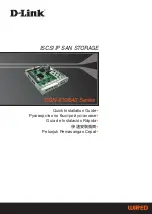
27
CHAPTER 5: The ServLINK Menu System
recorded in the ServLINK event log. Also, any active Power Management Modules
are cleared (deactivated) during the polling process, which puts the daisychain
into “pass-through mode.”
If no Power Management Modules are detected during the polling process, an
appropriate message is displayed, and the Activate, Settings, and Pass Through
buttons on the right of the window are grayed out. When this occurs, it is likely the
wrong COM port has been specified, another device in the ServLINK (often the
mouse) is interfering with access to the COM port, or the daisychain is not
properly installed.
Note that when ServLINK user security is enabled and the current user doesn’t
have access rights to all of the Power Management Modules in a daisychain, then
only those Modules for which the user has access rights appear here in the Module
list. For information about setting users’ access rights to the Power Management
Modules, see
Section 5.3
.
Here’s what the components of the main Control Module Processing box are for:
•
Pos
This column lists the “position numbers” of the Power Management Modules
in your Module daisychain. The “first” Module—the one controlling power to
the first computer, and attached directly to the serial port of the ServLINK
itself—is number 001. The second one, attached to the first’s IN port, is
number 002, and so on.
•
Power
This column indicates whether the Module is supplying power to the device
it’s attached to(ON) or not (OFF).
•
Description of Device...
This column lists any description entered for the device attached to this
Module in the matching field in the “Control Module Processing: Settings”
window (see
Section 5.1.2
).
•
Activate
Highlighting an entry and selecting this option will allow you to activate the
selected Power Management Module, so that it’s ready to receive commands or
data from the ServLINK. Only one Module can be active at a time.
Summary of Contents for ServLINK ACRPWR
Page 40: ...NOTES...
Page 41: ...NOTES...














































